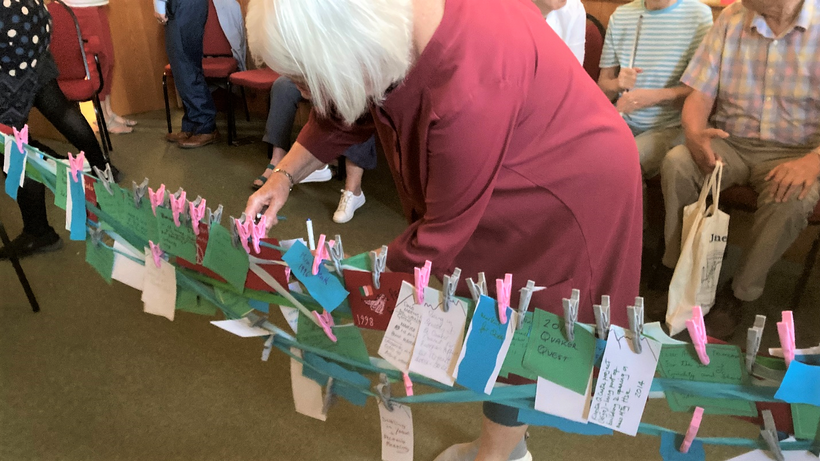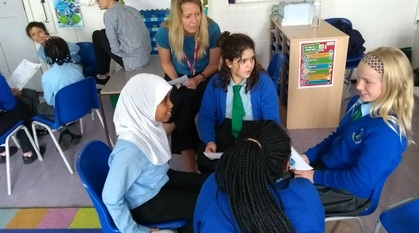Nurturing the spiritual life of our communities
Bridget Holtom reflects on the value of coming together to pause and take stock of what is at the core of our Quaker lives – worship and spiritual nurture.

I am somebody who reflects on what is nourishing me spiritually quite regularly. Whether it be wild swimming, singing in harmony or a windy walk on the moors, I find a range of activities help fill up my spiritual cup.
Quaker worship is an important part of my spiritual life and it is where I am part of an intergenerational community. I feel lucky that a large part of my role as a Local Development Worker is supporting Friends to ask the question 'what are we finding spiritually nourishing' – not as individuals but as a whole Quaker community.
I grew up a Quaker but spiritual reviews weren't something I was familiar with. However, when the elders of a Yorkshire meeting asked me how to do a spiritual review, we set about answering that question together.
A community focus
The meeting was faced with difficult decisions about buildings in their area meeting and having to simplify their structures. The elders decided they wanted to get together as a whole community first and focus on the core of what keeps them together. They focused on two questions:
What is the ministry of our local meeting? What might we do to nurture the spiritual life of our meeting?
Alongside a wider group of role holders we explored different ways to do a spiritual review and designed a process that would involve the whole meeting, including members and attenders of all ages. Using resources from other meetings, we held several sessions online and in person. We posted questions out in advance to include people who could not take part in the sessions. After the sessions people expressed a renewed "feeling of hope and opportunity".
Why do a spiritual review?
It might feel like too much effort to pause and reflect when you are only just able to put one foot in front of the other and find just enough role holders to keep the meeting going. But it doesn't have to be an onerous or serious task – it's a joyful opportunity to bring the whole community together.
In other groups I've worked with, tagging a simple question onto the shared lunch or having a 'Celebruncheon' to appreciate and celebrate one another can be a way for attenders to suddenly feel more ownership over the spiritual life of the meeting.
A spiritual review can also be a space to name the elephants in the room and air difficulties that have been blocking the community moving forward. It can be helpful to have a structure and dedicated space to name tensions that are negatively affecting the spiritual life of the meeting. Friends reported "learning to be brave and say how something makes you feel in a liberating way by having a platform for honesty in a safe way".
Quaker faith & practice 12.16 encourages Friends to pause and reflect on the life of the meeting. It says:
"Local meetings should regularly review their spiritual life and its expression in caring. A meeting might like to compile and use a series of queries for this purpose. ...Special attention might need to be given to involving those associated with the meeting who take little part in its regular life because of youth, age, disability or disaffection."
How to do a spiritual review
If you want to do something to nurture the spiritual life of your meeting but you're not sure where to begin, try one of the following:
1. Suggest it to your meeting
Bring the idea for a spiritual review to a local meeting for worship for business to get as many people on board as possible.


